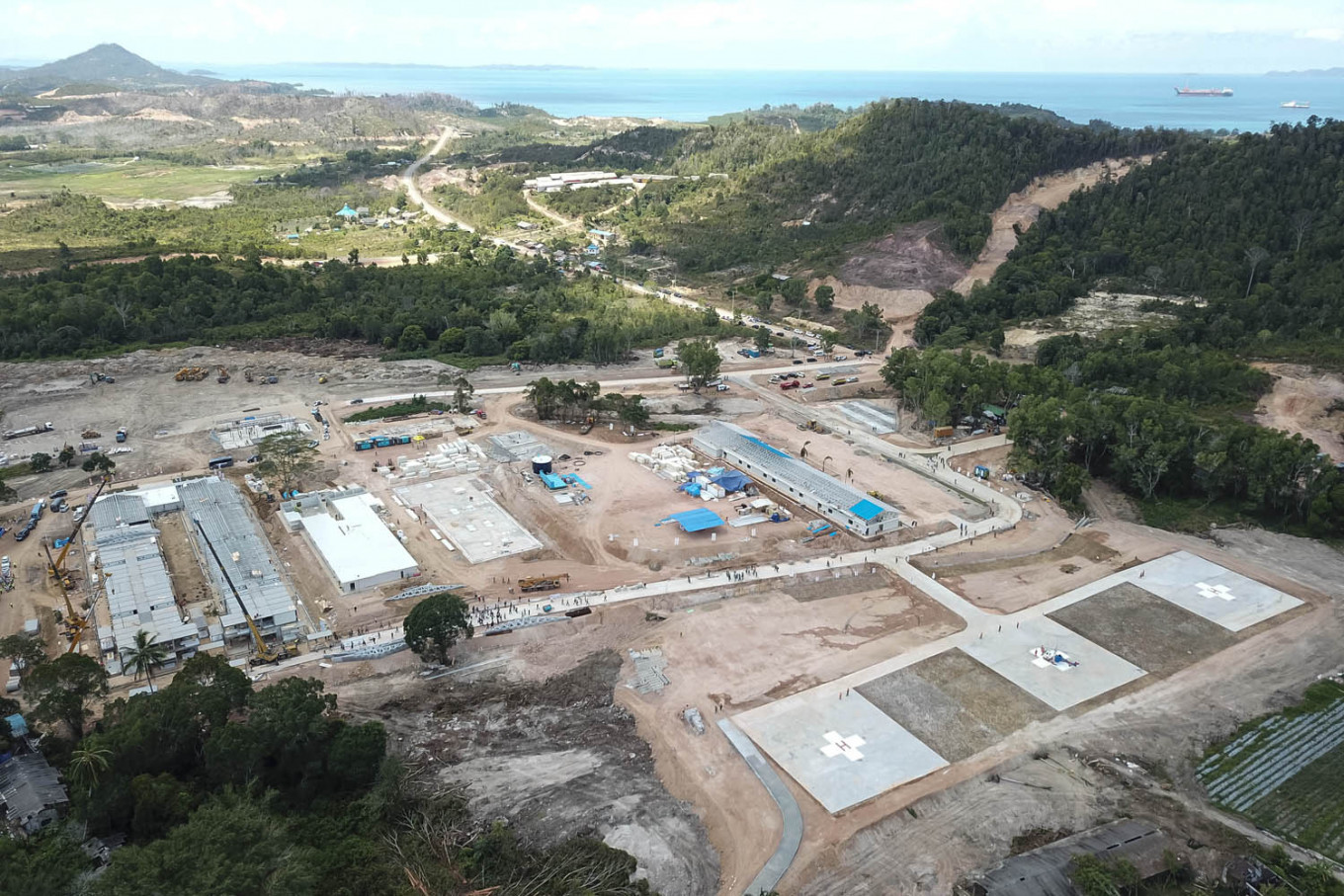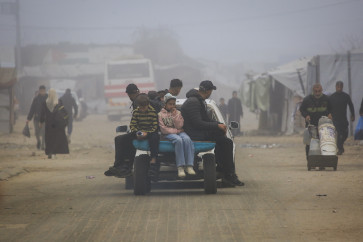Popular Reads
Top Results
Can't find what you're looking for?
View all search resultsPopular Reads
Top Results
Can't find what you're looking for?
View all search resultsMigrant workers repatriated from Malaysia to get construction jobs at home
The labor-intensive projects include the construction of village irrigation systems, sanitation systems, utilities and self-subsistent housing.
Change text size
Gift Premium Articles
to Anyone
 An aerial view of the COVID-19 hospital on Galang Island in Batam, Riau Islands, on March 25. To reduce the risk of imported COVID-19 cases from Malaysia-based Indonesian migrant workers, the government will use an emergency hospital on Galang Island to monitor and treat migrants returning from Malaysia. (Antara/Bobby)
An aerial view of the COVID-19 hospital on Galang Island in Batam, Riau Islands, on March 25. To reduce the risk of imported COVID-19 cases from Malaysia-based Indonesian migrant workers, the government will use an emergency hospital on Galang Island to monitor and treat migrants returning from Malaysia. (Antara/Bobby)
T
he Public Works and Housing Ministry will work with the Foreign Ministry to employ former Indonesian migrant workers (TKI) who previously worked in Malaysia in the ministry’s labor intensive infrastructure projects.
Public Works and Public Housing Minister Basuki Hadimuljono said the government had prepared a series of labor intensive projects in regions where TKI workers were concentrated to provide steady incomes those who were repatriated as a result of the COVID-19 pandemic in Malaysia.
“We are working closely with the Foreign Ministry to identify the hometowns of migrant workers who were repatriated from Malaysia. We will [then] establish labor-intensive projects,” he said during an online press briefing on Monday.
Basuki said the ministry had reallocated Rp 36.19 trillion (US$2.3 billion) from its Rp 120 trillion annual budget to help cushion the impact of COVID-19 in the country. The largest portion of the reallocated budget, Rp 24.53 trillion, will go towards direct aid or activities that are directly linked with COVID-19 mitigation efforts.
“A total of Rp 10.22 trillion will also be designated for labor-intensive programs in rural regions. The program aims to sustain rural citizens’ purchasing power,” Basuki said. The labor-intensive projects include the construction of village irrigation systems, sanitation systems, utilities and self-subsistent housing.
Rp 1.66 trillion of the budget will be used for infrastructure projects and equipment procurement to support the country’s healthcare system. This includes the conversion of the athletes village into a makeshift hospital and the construction of an emergency hospital in Galang Island, Riau Islands, which cost about Rp 400 billion.
Read also: Galang COVID-19 hospital ready to admit TKI, ease burden on regional hospitals
Previously, President Joko “Jokowi” Widodo cited reports estimating that about 3,000 Indonesian migrant workers had returned from Malaysia over the previous week, raising concerns about an uptick in imported COVID-19 cases.
To reduce the risk of imported COVID-19 cases from Malaysia-based TKI, the government will use the emergency hospital in Galang Island to monitor and treat migrants returning from Malaysia.
Galang Island COVID-19 Specialist Hospital, which opened on April 6, has 340 beds for patients under observation and a 20-bed isolation ward for intensive care. It also has a cemetery for burying the bodies of patients who have died of COVID-19, as many regions have reported heated public objections to burying COVID-19 patients in local cemeteries.
The hospital has 15 specialist doctors, 110 nurses and other support staff and 241 volunteers.









